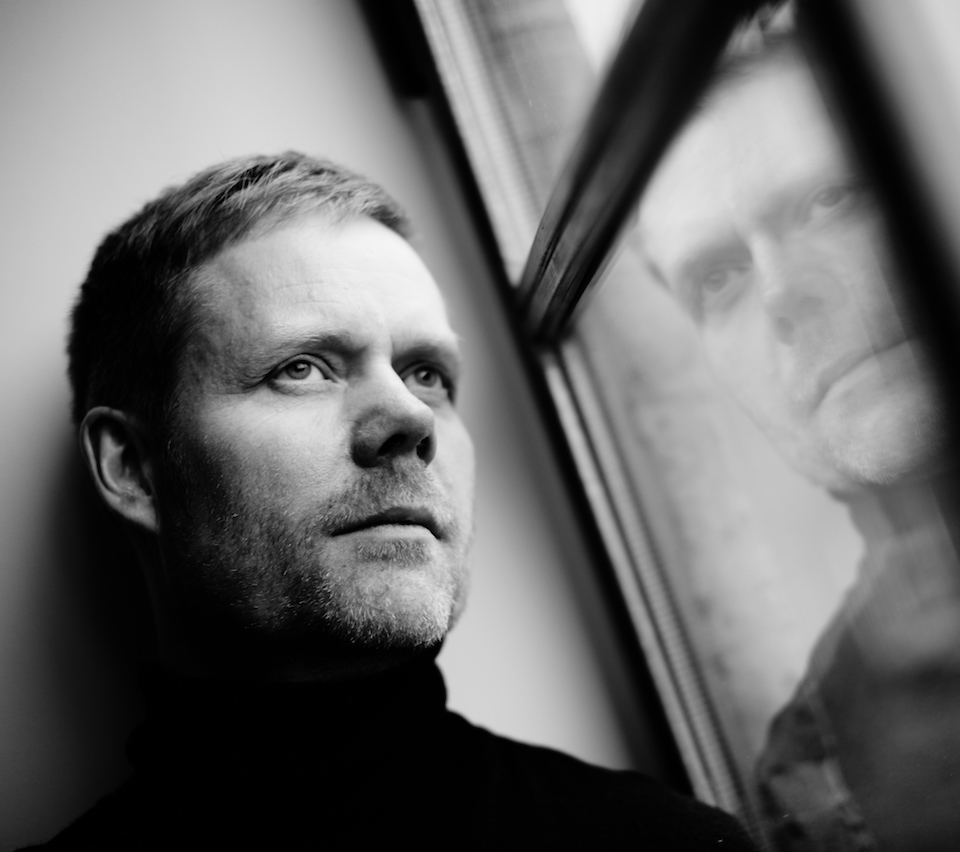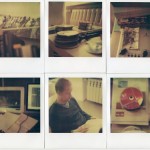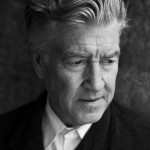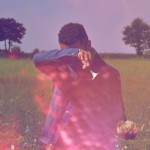To give you an idea of how busy Max Richter is these days, he was still scoring The Leftovers when we got a hold of him last month. Never mind the fact that HBO had already started airing the show’s second season; as it turns out, the British composer works quite well under pressure. Excels under it actually, as evidenced by the wildly ambitious and deeply experimental Sleep project he’s developed over the past few years.
While a 60-minute edit of the eight-hour piece quickly became 2015’s best-selling classical album on iTunes, an uncut edition is due out on December 11th in a box set that’s spread over eight CDs. That way listeners will be able to experience the record-breaking performance Richter led in late September, when BBC Radio 3’s “Science and Music” weekend culminated in the station’s longest live broadcast of a single musical work.
“You don’t really know what you’ve made until you’ve started to get feedback on it,” explains Richter, “and a live performance is perfect for that. It’s a laboratory. It was really interesting to make that journey through the night. And it wasn’t as difficult as I thought it’d be; playing the piece sort of carries you along. It was quite intense—a voyage of discovery.”
Richter’s orchestral ensemble won’t be reprising the full Sleep experience when they tour the UK next May, but they will be unveiling another take on it alongside a rendition of Richter’s breakthrough record The Blue Notebooks. In the following exclusive, he takes us on a tour of his entire career, from his early days of building homemade synths to stints working alongside Tilda Swinton, Roni Size and Robert Wyatt…
My first memories came from two kinds of music. The first was hearing my parents’ classical records in the house, especially Bach. The sounds made sense in a way. There was a kind of logic at work. I didn’t really understand what it was. I mean, I didn’t know anything about music. We’re talking about a tiny kid. But I had this feeling of order and structure.
Then there was my own experience—at 4, 5 or 6—of having these tunes get into my head and me modifying them. And then, I’d mentally pick up that tune again the next day and change it a bit more. So I always had this interior musical process going on.
Later on, I figured out this is called composing. Then I did all of the standard kid things, like piano lessons and all that. But it was all there right from the beginning really. I’d work with material the way a composer does before I even knew what that meant. I thought it was fun.
On the other side was the music going on around me—punk and new wave and early electronic music. The alt-y side of rock music. Those things always flowed together for me really.
I had a lot of interest in electronics as soon as I became aware of what a synthesizer was. I heard these sounds, but I didn’t know what instrument made them. I’d research it and ended up building synthesizer components in my bedroom.
My first memories of electronic music were the early Kraftwerk records. At that time, synthesizers cost as much as a house. Literally. Now you get one free with your Mac. I was building Moog-style, monophonic [synths] with three oscillators, vocoders, and various filters. I got busy with the soldering iron.
I had various attempts at piano lessons. I started out pretty young—at 5 or 6—but then I had a well-meaning but very old-fashioned piano teacher who used to hit me if I played the wrong notes. So I kinda went, “You know what? I’m not going to do this.” I resigned from piano lessons, then I got back into it later on, in my teen years. I did lots of catching up.
I was kind of fascinated by sound and music in all its forms. When I was a kid, my mom took me to see Fantasia, the Disney movie. And there’s a sequence in it where there’s an extract of Stravinsky’s Rite of Spring—an amazing piece of music. I was so obsessed with this thing that we queued up outside this cinema for an hour for the next show. She took me to see Fantasia twice in one day…. I’m kind of the alien in the family.
And then I got the more out there, sorta psychedelic stuff, English and American. Things like the Canterbury scene music, early Pink Floyd, the heavier end of Hendrix—music that was about sonic exploration in all its forms. And then some of the Krautrock things, like Can and Neu!, and out there stuff like Ornette Coleman. I was into experimental music in all its forms.
I lived in a little town north of London. There really wasn’t anything going on there except that it was one of the places where punk took hold early on. I saw people like The Clash, The Stranglers, and Stiff Little Fingers. Which was great, because punk was all about breaking things apart, starting over, and inventing a new world.
Everyone was obsessed with it, and then we were all like, “Oh no, what happened?” The early stuff still stands up though. That’s wonderful work I think. Like I was listening to the Clash the other day, and London Calling is just an incredible record.
I was making a living playing the piano for a long time. And then I did collaborative stuff with the Future Sound of London and Roni Size, the more out there end of experimental dance music. But I was always composing in the background.
https://youtu.be/2Bb0k9HgQxc
I didn’t really feel like I had found my language. So I spent some time studying with Luciano Berio in Italy, an amazing composer. I was writing really complicated modernist music at the time—really impenetrable stuff—and he just kinda said, “Why don’t you stop being so complicated and get down to whatever story it is you want to tell?” So I started refining everything, making things simpler. And it wasn’t until I got to Memoryhouse where I felt like I’d got to a language where I could tell the stories I wanted to be telling.
Piano Circus was a two-fold thing: a musical project, an experiment really. Can you have an ensemble made of one color—the piano? And it was also a social experiment because it was a flat structure, a collective. We started out playing Steve Reich’s Six Pianos; we just wanted to do that and enjoy it. But then we played Terry Riley’s In C and it was very enjoyable so we commissioned some stuff and asked friends to write some pieces. We ended up recording quite a bit. It was an interesting laboratory for performing and composing new work.
I sort of got to the point where I thought, ‘Well, what is music?’ It’s a couple of things: it’s storytelling and it’s talking. And if you’re trying to talk to someone, it should be in the same language, right? There’s a directness with minimalism that I really appreciate. It doesn’t mean it’s dumb. It just means you’ve restricted the language to something that’s legible. I really appreciate that aspect of it.
That kind of feeds into Sleep actually. It’s the most minimal project I’ve made, very much about the direct impact of that music on your psyche.
I was very thrilled to have a chance to connect with [Luciano Berio]. His insights into a score were extraordinary. I always felt like he was a mind reader. I would turn up with this page of densely scribbled notes and he’d immediately see what I was trying to do. And with an amazing level of detail. It really was kind of startling, an almost superhuman ability. He was a genius.
I met him through a friend of a friend. He had done a workshop and a friend of mine who’s a music writer had a connection to him somehow. I managed to get his home address and just wrote him a letter actually. I wasn’t expecting any kind of reply, so I was really shocked and amazed. I sent him a very complicated piano piece, as a kind of “here I am, I’m a serious composer, please teach me.” And to my amazement, he did.
I didn’t really flourish at the Royal Academy of Music. To some extent, that may have had to do with my attitude. Because I felt like I wanted to do my own thing and I was very restless following any course of study. I didn’t enjoy that. I just wanted to follow my own way.
I’ve always been interested in electronics. Some of the most creative stuff that was going on was in that field. It was a common shared space. With the Future Sound [of London] guys, it was interesting because it started off with me playing some piano for them, and in a way, I became their notation department. Because they worked with a lot of found objects and samples, and neither of them had traditional music training so they struggled to deal with the note and pitch dimension of the material. So I became a note wrangler for them, and did all sorts of arranging and production.
They’re great guys, but very different. Brian [Dougans] is this sort of cerebral, stoic, Scottish guy. And Garry [Cobain] is very psychedelic, crazy, and creative. So the two of them kind of need one another. They both bring something different to the party.
https://youtu.be/Ffht0ApbU24
Working with Roni Size was a gun-for-hire gig. But again, I felt like his work was very interesting, in the way that he handled time and rhythm. He really pushed that forward. He’s a virtuoso. That New Forms record was a game changer.
FatCat called me up and said there’s this woman Vashti Bunyan who’d like to make a record and she doesn’t quite know how to go about it. So I went to meet her—having vaguely knowing of her but not the whole story—and she’s just one of the nicest people you’ll ever met. So genuine and real, and such a great storyteller. We got on really well, and I thought, ‘This is really wonderful material.’ I thought it’d be a great thrill to be involved with it in some way.
https://youtu.be/g15wkJB9l6Y
That record had a long gestation. We probably worked on it for about a year. It was great fun. I felt like a midwife bringing this creature into the world. It was an incredibly satisfying experience—a record I’m really fond of now.
The timing was very good. We had Devendra [Banhart], and all the Espers guys, and Kieran [Hebden] from Four Tet on the record. It was a moment, you know? Fascinating and fun.
I wrote Memoryhouse without any hope that it’d ever be recorded or released because it’s a big-scale piece and no one’s ever going to give you the money to do that. But then, spookily, the BBC did.
That was amazing. Unfortunately I don’t think it had a single review when it came out, and essentially no sales. It felt like a complete and utter failure at the time. In a way, there was something quite liberating about that, because it meant there was absolutely no pressure on me. It’s like a tree falling in the forest and no one being there to see it. I’d made this record and no one heard it, so I thought, ‘In that case, I don’t have to worry about pleasing anyone.’
I talked to FatCat about a project before The Blue Notebooks. It had some of the things from Memoryhouse and they were pretty enthusiastic. I’d heard the first Sigur Rós record, and the Set Fire to Flames stuff, and Godspeed [You! Black Emperor], and thought, ‘Okay, I get these guys. They connect to my world in some way.’ But then there was no way to make Memoryhousewithout a big budget. So when the BBC came along, I thought that was perfect and I could do a smaller scale project with FatCat, which is exactly what we did with The Blue Notebooks.
I wanted to use these [Kafka] texts with the record and I thought Tilda would be great for them. So I just cold-called her after getting her number from her agent. Fortunately she was one of the four people in the world who knew about Memoryhouse, so for her, it was like, “Yeah!” Which is crazy. She’s a very creative, brilliant person, just full of ideas.
It was great, really nice. She agreed to do it, and I jumped on a plane to Scotland. We recorded it up there in an hour or something and then had tea with the kids.
https://youtu.be/A0-5Rl4XykU
Robert [Wyatt]’s a legend, isn’t he? What a wonderful musician, storyteller and human being, a very interesting guy—such a creative character on many levels. It was a thrill being in the same room as him honestly. It was a similar thing: I took a recorder to his place, and we sat around drinking wine and recording stuff [for Songs From Before].
I’m very interested in biography as a sort of fiction—that sort of dream state where we narrate our own lives to ourselves. Memory, all of this stuff is in Murakami [books]. I had discovered him on a flight to Tokyo, funnily enough. And I had this weird trip where everything in fantasy and reality sort of blended together. It made the whole trip hyperreal. I enjoy things like that.
24 Postcards In Full Colour was a reaction to the business aspect of ringtones. I felt like here we have 500 million loudspeakers walking around the planet. Why is the sound coming out of these loudspeakers so terrible? It felt like a missed opportunity for music, this creative space instead of a purely commercial one. In a way, [the songs] are kinda like anti-ringtones. They’ll make you miss your calls, which is kinda the point.
In a way, it’s a provocation. But it was also a nightmare for me as a composer. Every form has its challenges, though, whether it’s a ballet, a film score, or a record. Everything has its own limitations.
The original [Infra] ballet was a response to the London bombings on 7/7. The piece is about traveling, and in a way, [the songs] are quite existential, a meditation on the political state of London at that time and the tragedy of those events. We all knew people who had been affected by it or killed. Music is a social activity, and by definition, making any kind of statement is a political act.
https://youtu.be/1_fDidYDQcs
Vivaldi [Recomposed] was an experimental project, a personal response to The Four Seasons, a piece I loved but grew to hate as I got older and heard it too much. It was a way to rediscover it, to poke around in that landscape and find new ways of experiencing it—another perspective on that material, an act of affection not vandalism.
Sleep is one of my favorite activities. It’s an idea I’ve been carrying around for a while now. It feeds into that renewed interest in durational art like Marina Abramovic, Terry Riley and Philip Glass. It also speaks to my interest in music performance and those rituals.
I always felt like the ideal performance is more like an installation. Gallery settings are a little more liberal in their structure than more formal venues. I think of it as an experiment, to see how sleep and music can coexist. And to run that experiment, you need to go through that whole journey.
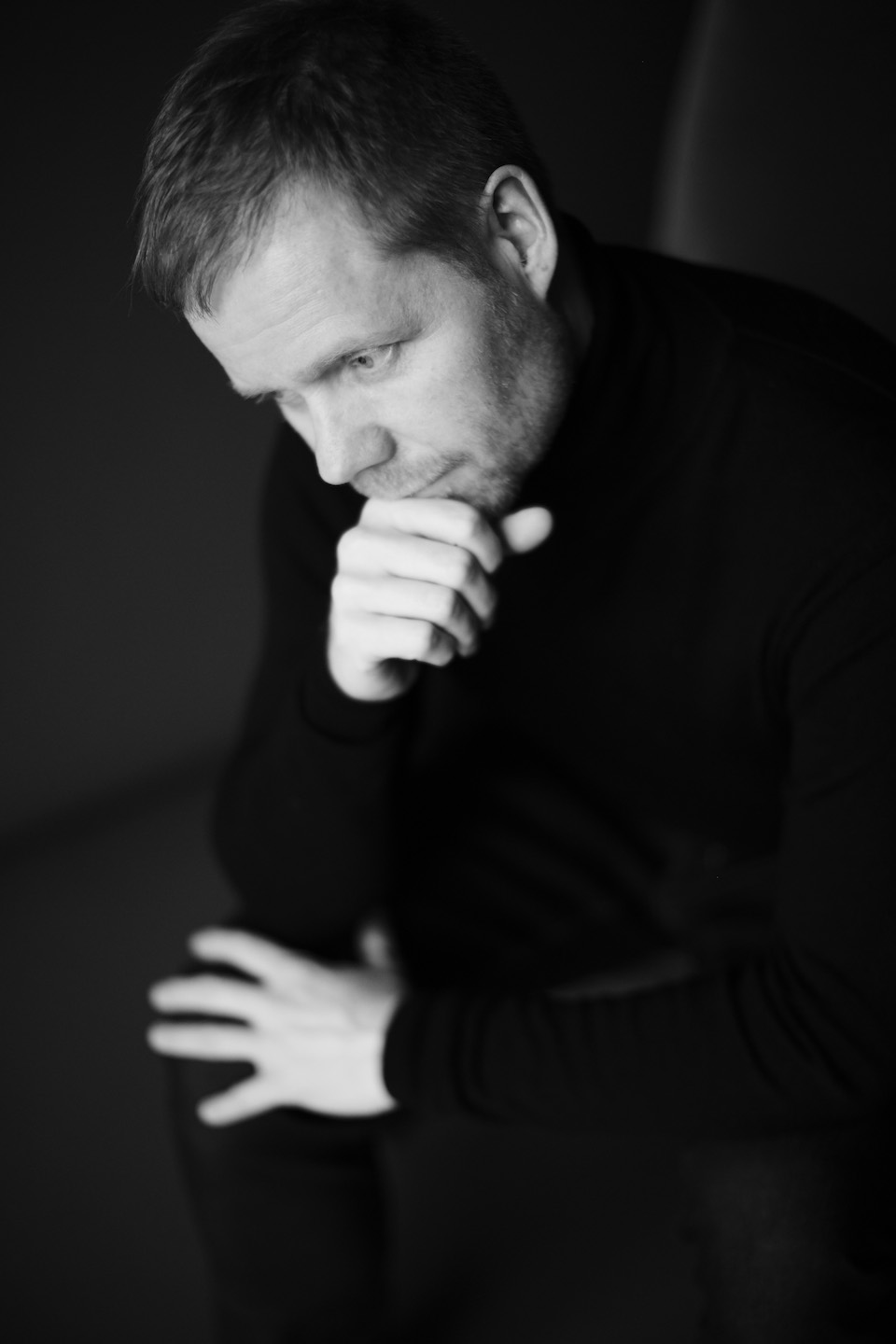
MAX RICHTER ON TWO OF HIS FILM SCORES
1. Waltz With Bashir
One day I got an email out of the blue from a guy who said “I’ve just been holed up in a shack on the beach listening to The Blue Notebooks for three days solid while writing a film. I’ve finished it and now you have to score it.” I was, like, “?!?…”
This turned out to be Ari Folman.
When I read the script and later saw a little extract he sent me, I immediately knew that I wanted to work him. WWB is one of the real landmarks of cinema, and certainly one of a small handful of really important films made this century so far. Ari is a genius.
He came over to Edinburgh then, where I was living at the time to spot the film. But we never spotted it—just spent some days together drinking and talking about our mutual love of all things Bob Dylan. And that was it; he left me to do whatever I wanted to do.
I wrote most of the music in a week or so, not referring to the pictures at all, but just off Ari’s remarkable script. We had very little money to do it, so it was an unusual recording process, trying to make five players sound like an orchestra; I certainly put in the studio hours on this one!
At the Oscars that year WWB was up against Wall-E for Best Animated Film, and someone pointed out that we shouldn’t be sad we didn’t win because the music budget alone on Wall-E was bigger than the entire film budget for WWB. Hilarious!
I feel proud of the film still. It’s a remarkable project.
https://youtu.be/pxEgGTJCl3I
2. The Leftovers
I was intrigued to get a call from Damon [Lindelof] about his new TV show (the first one post-Lost), and again, once I read the script I was completely into it. Damon and Tom Perrotta, who wrote the book and who is very involved in the show, are just really smart and fun people to work with. They don’t micro-manage and when there are comments and directions they are relentlessly good ideas.
So it has been great working on the show. I never saw Lost—which I’m glad about now—so I’m living in Damon’s world as a freshman, enjoying each episode as it pops into my inbox, curious to see what they are coming up with next. I try not to second guess what’ll be there; it keeps the show fresher for me.
Last year we played the score live several times, and you could hear a pin drop during the set. People are really living in that world.
